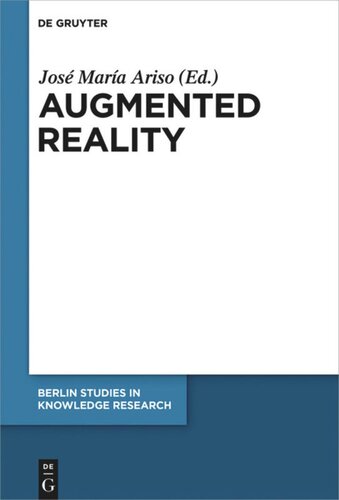

Most ebook files are in PDF format, so you can easily read them using various software such as Foxit Reader or directly on the Google Chrome browser.
Some ebook files are released by publishers in other formats such as .awz, .mobi, .epub, .fb2, etc. You may need to install specific software to read these formats on mobile/PC, such as Calibre.
Please read the tutorial at this link: https://ebookbell.com/faq
We offer FREE conversion to the popular formats you request; however, this may take some time. Therefore, right after payment, please email us, and we will try to provide the service as quickly as possible.
For some exceptional file formats or broken links (if any), please refrain from opening any disputes. Instead, email us first, and we will try to assist within a maximum of 6 hours.
EbookBell Team

4.4
72 reviewsThere is at present no publication specifically dedicated to analyzing the philosophical implications of augmented reality, especially regarding knowledge formation, which constitutes a fundamental trait of knowledge society. That is why this volume includes an analysis of the applications and implications of augmented reality. While applications cover diverse fields like psychopathology and education, implications concern issues as diverse as negative knowledge, group cognition, the internet of things, and ontological issues, among others. In this way, it is intended not only to generate answers, but also, to draw attention to new problems that arise with the diffusion of augmented reality. In order to contemplate these problems from diverse perspectives, the auhors are from a variety of fields - philosophy, computer sciencess, education, psychology, and many more. Accordingly, the volume offers varied and interesting contributions which are of interest to professionals from multiple disciplines.